We at MHARR have the greatest respect for Jim Ayotte, but his recent commentary on the final Duty to Serve (DTS) rule issued by the Federal Housing Finance Agency (FHFA) is far too charitable.
It’s one thing to see the proverbial glass as half full versus half empty. It’s another to accept a few droplets as half a glass.
And that is what consumers and the industry have gotten from FHFA – a few drops at the bottom of the glass, window dressing that is not likely to lead anywhere soon, despite the urgent need now for affordable and competitive chattel-based consumer financing for manufactured homes.
If Congress had meant the “duty to serve” to be optional, it would not have called it a “duty.” The dictionary definition of a “duty” has – at its core – a mandatory responsibility. And Congress is presumed to use words according to their ordinary and customary meaning. But nothing in the FHFA rule would require Fannie Mae or Freddie Mac to do anything to support MH chattel loans – not even a “pilot program” (more about that in a moment). So the “duty” instituted by FHFA is not really a “duty” at all, but a choice left to entities that have steadfastly refused to provide secondary market support for MH chattel loans – which prompted the “duty to serve” in the first place.

If all this sounds familiar, it should. It mimics HUD’s “interpretation” of its statutory “responsibility” to appoint a non-career administrator for the federal manufactured housing program as “not mandatory” even though Webster’s says it is. But HUD (and maybe now FHFA) has gotten away with it because much of the industry plays along.
It’s hard to see, then, how a non-duty which leaves Fannie Mae and Freddie Mac free to ignore the 80% of the manufactured housing market represented by chattel placements (not 70% as reported elsewhere) lives up to the directive of Congress.
While it’s true that FHFA’s final rule leaves the door open just a crack for chattel, rather than slamming it shut as it did in its proposed rules, what does this really do for consumers and an industry that needs competitively-priced and readily-available chattel financing in order to reach its full potential?
DTS was enacted by Congress nine years ago. If either FHFA or the Enterprises were really interested in MH chattel financing, there has been plenty of time to do the groundwork and obtain the necessary loan performance information. There has even been time for a “pilot program” or two over the last decade. No, instead, we’re supposed to take it slow, with a non-duty “duty,” while consumers are needlessly herded into higher-cost loans, paying more than they would in a truly competitive financing market not distorted by official discrimination that would be unacceptable in any other context.
With nine years already gone, how much longer will consumers have to wait for the industry to demand full financing parity with other types of housing? Washington, D.C. is traditionally a graveyard for all kinds of “pilot programs” started with the best of intentions. Given a “duty” by Congress, the burden is not – and should not – be on the industry and consumers to prove their worthiness. The burden should be on FHFA and the Enterprises to show why they are not complying with the will and word of Congress now. ##
By M. Mark Weiss, JD.
President and CEO of the Manufactured Housing Association for Regulatory Reform (MHARR).
(The graphic above and the headline are provided by the editor, as is customary with many publishers. The content expresses the views of the writer.)






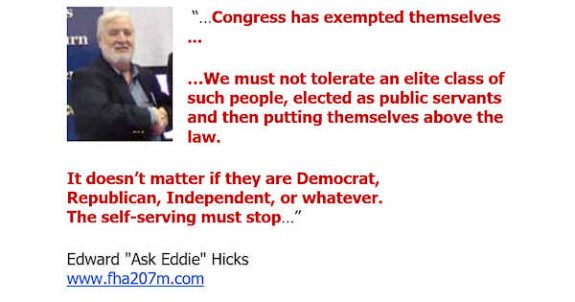



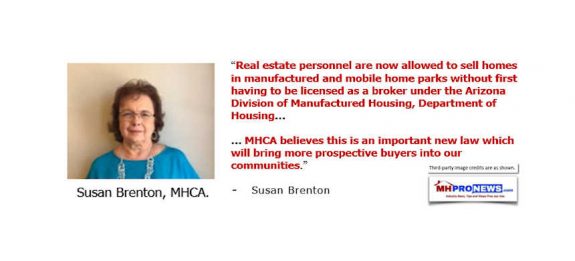
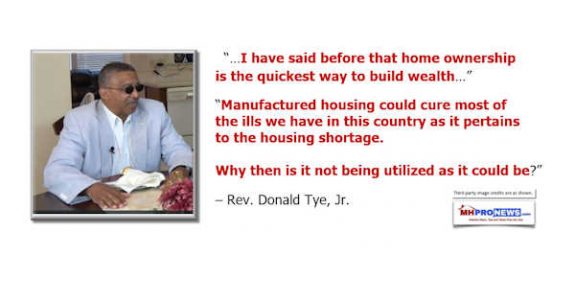
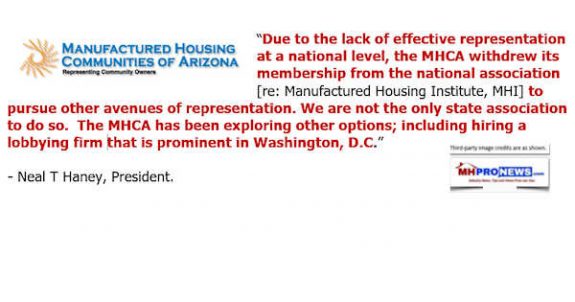

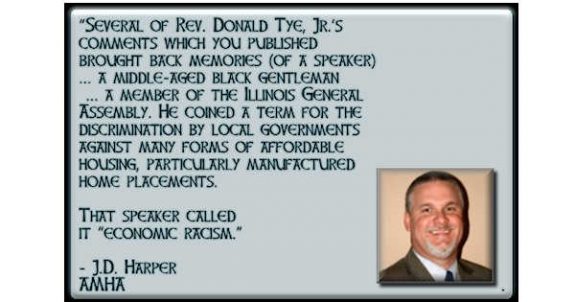

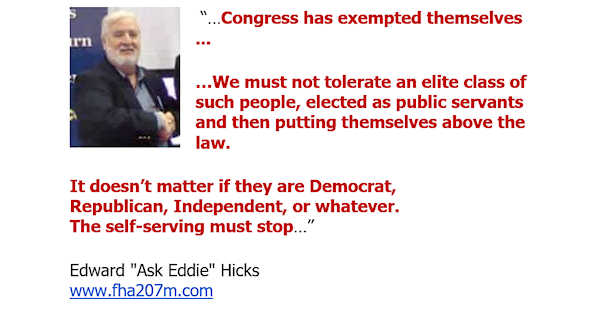
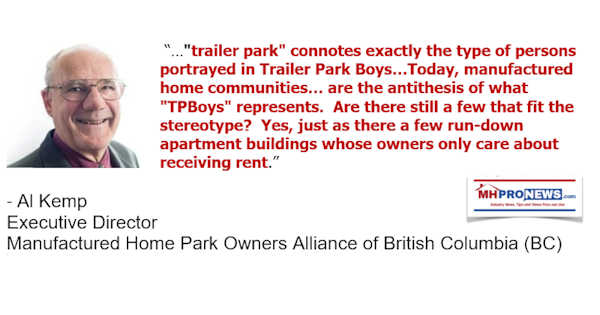

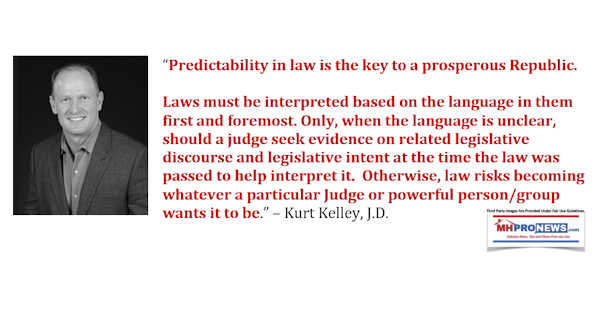

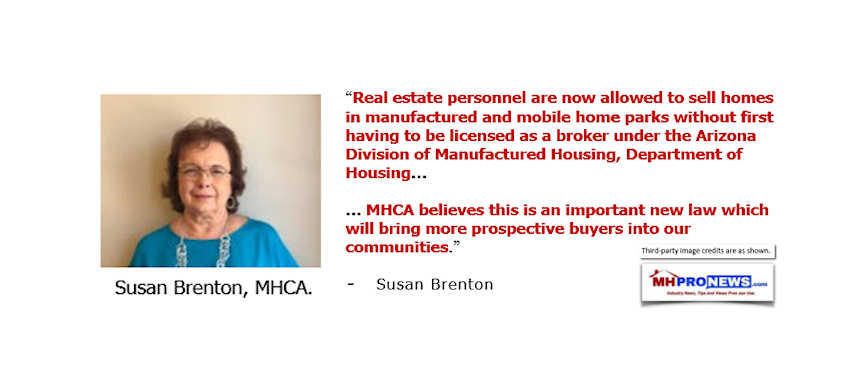
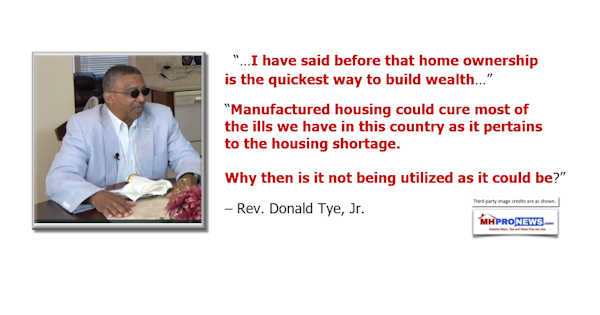
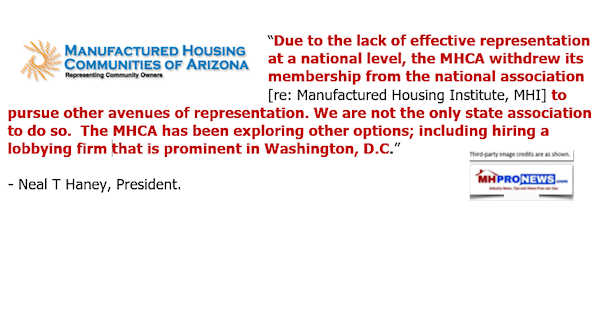

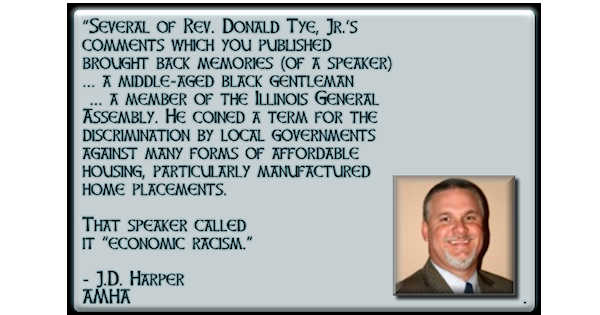
Karl Radde – TMHA, MHI, Southern Comfort Homes – Addressing Bryan City Leaders, Letter on Proposed Manufactured Home Ban
To All Concerned [Bryan City Officials, Others]: As the retail location referenced by Mr. Inderman, I would like to take a moment to address the …